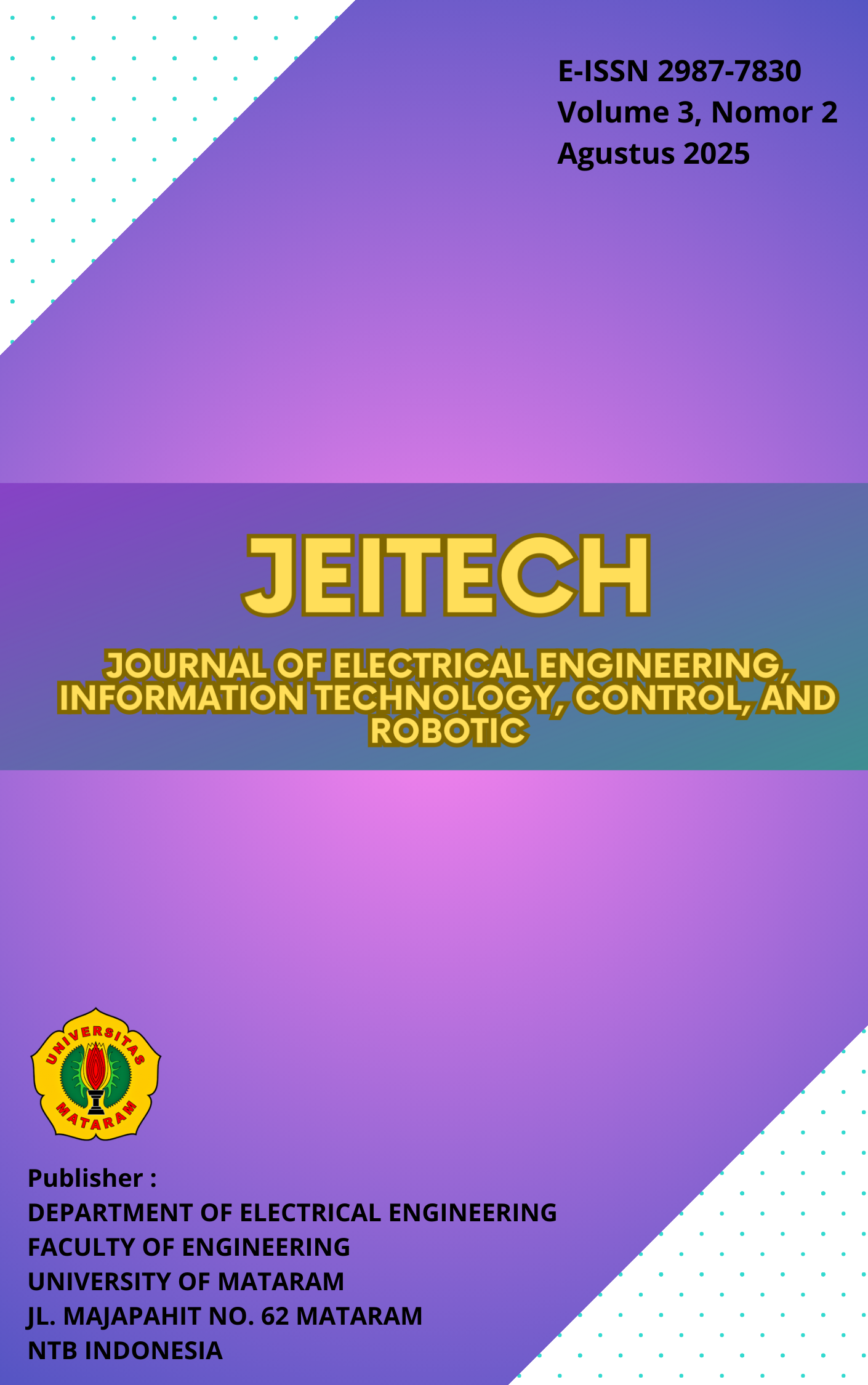Analisis Tekno-Ekonomi dan Fraksi Energi Terbarukan pada Sistem Energi Hibrid Off-Grid Berbasis Potensi Energi Lokal Menggunakan Software HOMER
Kata Kunci:
Techno-Economic Analysis, Renewable Energy Fraction, Off-Grid Hybrid Energy System, Local Energy Potential, HOMER SoftwareAbstrak
The development of an off-grid hybrid energy system based on local energy potential offers a solution to improve energy access in remote areas. Lenek Village, located in East Lombok, West Nusa Tenggara (NTB), has renewable energy potential in the form of solar and biomass energy. This study aims to conduct a technical and economic analysis of an off-grid hybrid energy system that utilizes this local energy potential using HOMER software. The study evaluates the renewable energy fraction, capital cost, operating cost, and overall system economic feasibility. The results show that the energy supply combination includes a photovoltaic (PV) fraction of 15%, biomass generator of 15%, and wind energy of 69%, at a competitive cost. The use of HOMER software facilitates system analysis and optimization. The total cost required for overall power generation (Total Net Present Cost) is US$2,351,595, with a cost of energy (COE) of US$0.674 per kWh.







